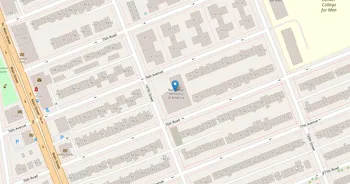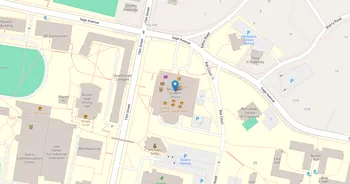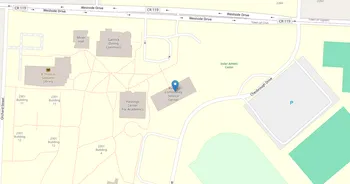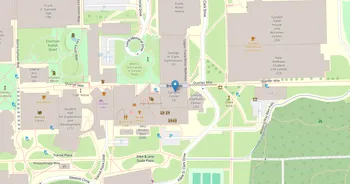Rabbinical College of Long Island : Overview, Courses, Scholarships & Rankings
About Rabbinical College of Long Island
Set in a seaside city, Rabbinical College of Long Island is known for immersive beit midrash study, close mentorship, and chavruta partnerships that sharpen thinking. Coursework leans into classic texts, ethical reasoning, and community leadership, supported by a focused study hall, a well-used library, prayer spaces, and student services like advising, tutoring, and spiritual guidance.
Campus life feels close-knit and purposeful, shaped by the rhythm of the Jewish calendar, guest lectures, and shared Shabbat moments. When books close, the boardwalk, beaches, and parks offer low-key downtime, from seaside walks to pickup games. Career preparation draws on faculty guidance, placement support, and ties to synagogues, schools, and community groups, with the wider New York area opening doors to service, culture, and hands-on experience.
Key Institutional Details
Contact & Profile
Academic & Institutional
Academic Programs & Fields of Study
Rabbinical College of Long Island offers 1 degree programs across 1 major academic fields, graduating approximately 47 students annually. The most popular fields by graduate volume are Philosophy (1 programs, 47 graduates). Explore program details, award levels, and graduate demographics below.
Philosophy (1 programs, 47 graduates)
Philosophical Studies, Ethics and Religious Thought
| Program Name | Graduates | Gender Distribution | Award Levels | CIP Code |
|---|---|---|---|---|
| Talmudic Studies | 47 |
|
Associate's
Bachelor's
|
38.0207 |
Admission Requirements & Test Scores
Comprehensive overview of admission criteria, standardized test score ranges, and application requirements for prospective students at Rabbinical College of Long Island.
Application Requirements
Data based on IPEDS for 2022-2023 academic year. Test score ranges represent the middle 50% of admitted students (25th-75th percentile). Requirements may vary by program.
Tuition, Fees & Estimated Costs
Overview of tuition rates, housing, and other annual education expenses for undergraduate and graduate students
Financial Aid & Student Support
Summary of scholarships, grants, student loans, and financial aid statistics for undergraduate students
Student Success Metrics
Graduation rates and post-graduation earnings to help assess student outcomes and long-term value of education.
Loan Burden & Repayment Outcomes
Breakdown of loan repayment rates and student debt levels by income and dependency status.
Frequently Asked Questions
Find answers to the most common questions about Rabbinical College of Long Island
How much does it cost to attend Rabbinical College of Long Island?
The annual tuition at Rabbinical College of Long Island is $10,290 for in-state students. When including room and board, books, and other expenses, the total estimated cost is approximately $21,600 for in-state students. Additional costs include room and board $5,010 (on-campus) and books and supplies $300.
Data based on IPEDS program completions for 2022-2023 academic year. Tuition and cost estimates are approximate and may not include all fees, personal expenses, or transportation costs.
What academic programs and degree levels does Rabbinical College of Long Island offer?
Rabbinical College of Long Island offers 1 academic programs across 1 major fields of study, with available degree levels: Associate's, Bachelor's.
Most popular program areas include:
- Philosophical Studies, Ethics and Religious Thought (1 programs)
Data based on IPEDS program completions for 2023-2024 academic year. Numbers reflect programs where students graduated, not all offered programs.
What is the acceptance rate for Rabbinical College of Long Island?
Rabbinical College of Long Island has an 100% acceptance rate and a 100% yield rate, making it moderately selective.
Admission statistics breakdown:
- Total applicants: 45
- Students admitted: 45
- Students enrolled: 45
Data based on IPEDS for 2022-2023 academic year. Admission statistics may vary by program and application cycle.
What financial aid and scholarships are available at Rabbinical College of Long Island?
Rabbinical College of Long Island provides financial aid to 25% of first-time, full-time students, with average grants of $10,462 and average loans of $0.
Average financial aid amounts by type:
- Pell grants: $8,717
- State/Local grants: $1,601
- Institutional grants: $8,381
The university supports 27 students with grants and 0 students with loans annually.
Data based on IPEDS for 2022-2023 academic year. Financial aid amounts and percentages may vary by program, enrollment status, and individual circumstances.
Related Universities




Found something useful? Help others discover it too! Share with friends, on social media, or save for later - every share helps someone find the information they need.